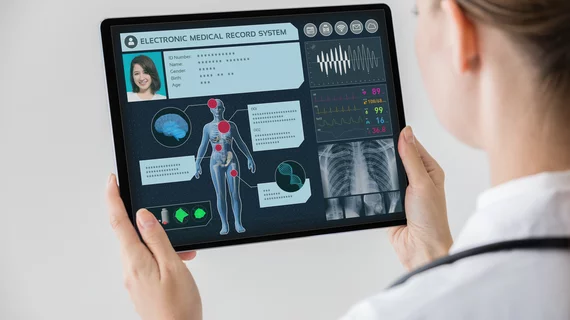Tech companies throw weight behind healthcare interoperability mission
In another sign that technology companies are increasingly looking for ways to build out their businesses in the healthcare sector, Amazon, Microsoft, Google, IBM, Oracle and Salesforce have teamed up to address healthcare interoperability.
The six tech companies “share the common quest” to improve healthcare data interoperability, they said in a joint statement.
“We are jointly committed to removing barriers for the adoption of technologies for healthcare interoperability, particularly those that are enabled through the cloud and artificial intelligence (AI),” the statement reads.
As the healthcare industry has seen a continued emergence of new technology and wider adoption of electronic health and medical records, interoperability between systems and providers has also become a bigger challenge. Interoperability is a combination of technical and policy challenges, according Josh Mandel, chief architect of Microsoft Healthcare, who wrote a blog post about the announcement, which was made at the CMS Blue Button 2.0 Developer Conference in Washington, D.C.
“As support for this common data set grows, it becomes easier to plug new tools into clinical workflows, analyze clinical histories, collect new data, and coordinate care,” Mandel wrote. “Many of these technical capabilities have been available within small, tight-knit health systems for a long time–but developing these capabilities has required complex, custom engineering and ongoing maintenance and support.”
Microsoft has supported the emerging Fast Healthcare Interoperability Resources (FHIR) and worked on data sharing projects to create interoperable ecosystems through software development. The company is also focused on tech solutions to meet the goals of value-based care, Mandel wrote.
The companies together committed to engaging development of healthcare standards and conformity assessment to accelerate the pace of innovation. The “robust industry dialogue” will help advance the cause of interoperability, the statement reads.
While the joint cause of the six tech companies was focused on interoperability, Amazon has taken other steps to insert itself into the healthcare space. It has quickly ramped up to become a major supplier of medical products online for businesses through its Amazon Business platform, as well as recently announcing it will open care clinics for its Seattle-based employees.
Google, meanwhile, has developed an artificial intelligence (AI) system capable of predicting patient outcomes once admitted to the hospital.

